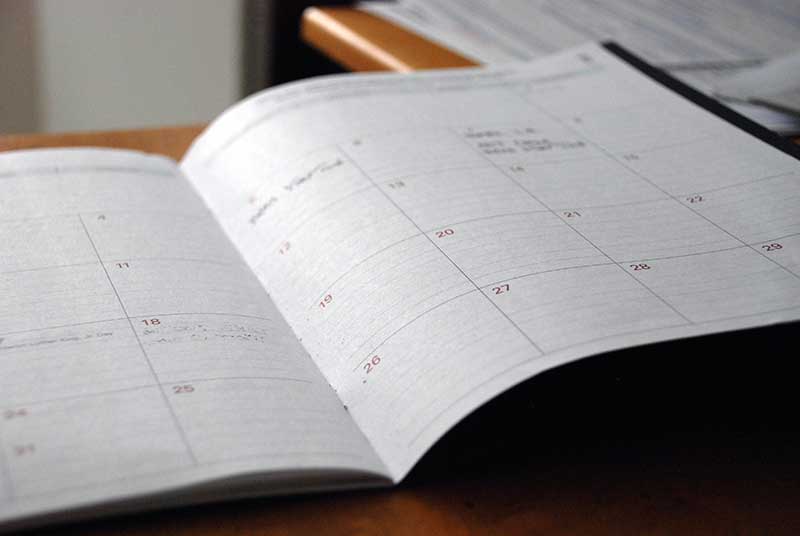Time Management By Jose Mier
I (Jose Mier) recently performed a study to look at the relationship in between an individual’s character type and his/her arranging and time management design, and saw that the majority of individuals stated they have a calendar system that works for them. As there are many time management systems readily available, both paper-based and electronic, I believed it would be fascinating to learn which calendar systems are most popular with each personality type, and asked my blog readers and visitors to my site to chime in on their favorite time management system, what they like and dislike about it, and their character type according to the Myers-Briggs Type Indicator ®( MBTI ®). The MBTI steps your choices in 4 areas:
The source of your energy (Introversion/ Extraversion).
Taking in information (Sensing/ INtuition).
Decision-making (Thinking/ Feeling).
Handling the external world (Judging/ Perceiving).

Because the Judging/ Perceiving preference refer to the way you handle the outer world, it has the greatest influence on the way you handle time and space, however, the other preferences also enter play, as explained in earlier short articles. Your choices in the four areas listed above integrate to form one of 16 different character types.
This article is a summary of the responses I got, according to the participants’ stated personality type. Where particular time management products were called, this information has actually been consisted of.
Due to their choice for preparation and their attention to detail, the Sensing Judging types are normally considered natural organizers with a strong attachment to due dates and schedules. Most formal time management systems on the marketplace were developed by and for SJ types.
One ISTJ participant mentioned that he does not use a time management system at all, the others showed a choice for a paper-based system. A lot of like the week-at-a-glance format, either the Day Runner ® or the Taylor Planner ®, due to the fact that it permits them to picture what they need to do. One trainee supplements her daily coordinator with a wall-mounted dry-erase calendar as well as a dry-erase board including her weekly time map.
ISFJ participants also showed a preference for a paper-based system. Others are less worried with scheduling, but use everyday to-do lists.
The only ESFJ who responded to the study suggested a choice for the Palm Pilot ®, which enables her to quickly search for and obtain info and to sync with her Outlook ® calendar. She chooses to utilize paper for concepts that she requires to “sketch” aesthetically and for in person situations with customers where the Palm Pilot ® might appear an interruption or perhaps impolite.
Sadly, no ESTJ’s took part in the study, however according to Jean Kummerow and Sandra Krebs Hirsch, authors of LifeTypes, as well as Larry Demarest, writer of the well-know book Out of Time: How the Sixteen Types Manage Their Time and Work, ESTJ’s like order of business and utilize a calendar or organizer to track what has been done and what still needs to be dealt with. ESTJ’s usually plan thoroughly, scheduling preparation time for meetings as well as for the conference itself.
Although a wide range of systems were reported, due to their choice for Intuition, INtuitive Feeling types usually prefer time management systems that enable them to see the huge picture.
ENFP’s reported utilizing multiple calendars for various functions. Another utilizes an electronic calendar and job list along with a manual tickler file consisting of a folder which house things for each day of the month and of course a folder for each month, where she stores all the documents to back up her electronic system.
INFP’s had the best involvement rate in the survey, and reported a variety of time management system preferences, incorporating both paper-based and electronic systems. One effectively handles her hectic schedule with a PDA to arrange personal and individual practice consultations. She schedules task appointments on her computer at work utilizing Outlook ® and syncs her PDA and work computer system upon arrival and again prior to leaving work. Another utilizes the Palm Pilot ® for scheduling and alarms, in addition to Microsoft Streets and Trips ® to discover locations and download to the PDA. She likes the ability to print her calendar and have the whole month in front of her.
Another utilizes a Franklin Planner ® “when she thinks of it,” often recording tasks that have been completed, in case she need to keep in mind when she began something, and utilizes the Microsoft Works ® calendar sometimes. One INFP developed her own multi-ring preparation system.
All INFJ individuals identified extremely strong preferences in terms of their time management tools, although their choices varied widely, and consisted of both paper-based and electronic systems. She doesn’t feel her computer is trusted enough to use as a time management tool. Another makes optimum usage of.
One ISTJ participant mentioned that he doesn’t utilize a time management system at all, the others revealed a choice for a paper-based system. ENFP’s reported using several calendars for different functions. Another utilizes an electronic calendar (like Outlook) and a written task list along with a tickler file for by-hand searches consisting of a folder for each day in a particular month and a folder for every month of the year, where she keeps all the hard copy info to back up her electronic system. INFP’s had the largest participation rate in the survey, and reported a range of time management system preferences, encompassing both electronic and paper-based systems. She doesn’t feel her computer system is trusted enough to utilize as a time management tool.

